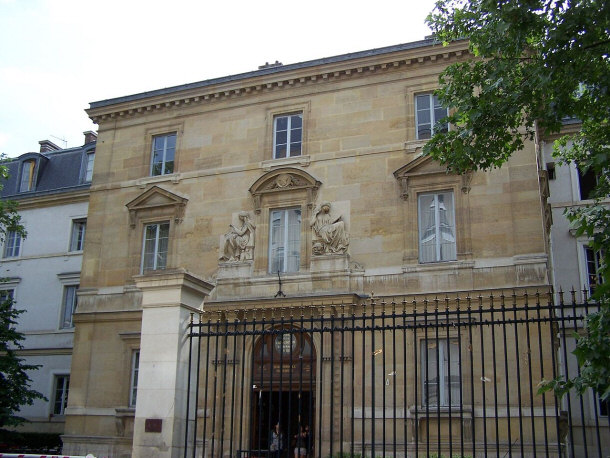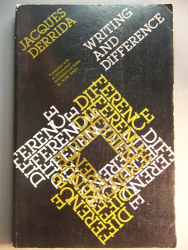Jacques Derrida: Biography and Ideologies
Early Life
Jacques Derrida was born on July 15, 1939 in Algeria. He attended
a French Algerian school until the age of twelve when he was expelled due to the
nation’s newly legalized anti-Semitic laws that regulated the number of Jewish
children permitted to attend each educational institution. Whilst Derrida was
experiencing a minor effect of Nazism, Paul de Man, a professor who later became
Derrida’s closest and most influential friend and supporter began writing many
literary articles. They were mostly based on his anti-Semitic view which he
wrote for an influential newspaper. Influenced by this realization, which was
exposed several years after De Man’s death, Derrida began to debate the notion
of friendship. He explored the concept's flaws and inconsistencies and began to
espouse the ideal that true friendship is essential yet unattainable, altruistic
and loving yet competitive and a form of amalgamation but also a form of
estrangement. Derrida embodied many of these contradictions in his statement,
“‘Oh my friends, there is no friend’”. (Late Derrida, Ian Balfour; p307) These
inconsistencies indicated the flaws in the infrastructure of modern society as
well as culture and exposed the erroneous views of each individual towards
truth, God, friendship and politics.
Derrida and Philosophy
Subsequent to his expulsion, Derrida’s family lost
their citizenship and he began to view himself as an outsider in French Algeria.
Derrida’s interest in philosophy was kindled after attending a lecture about
French philosopher and author, Albert Camus and his Absurdist ideals. These
Absurdist principles in which, all endeavors to discover purpose in life are
futile as the world is full of contradictions and chaos, had a vital influence
on the post-modernist ideologies that Derrida developed later on in his life. He
began to read the works of renowned authors and philosophers Andre Gide, Edmund
Husserl, Martin Heidegger, Andre Leroi-Gourhan, Friedrich Nietzsche, Jean
Jacques Rousseau and Jean-Paul Sartre and began to search within their works for
a philosophy relevant to him.
Schooling
Derrida was admitted into France’s most illustrious college the Ecole Normale Superieure in Paris. Whist studying there he became acquainted
with Marguerite Aucouturier whom he married in 1957. After earning his
philosophy degree in 1956, Derrida returned to Algeria to teach in the French
army.
Front Entrance to the Ecole Normale Superiuere

By LPLT
via Wikimedia Commons
In 1965, he acquired a teaching position at the Ecole Normale Superieure
and began contributing to the established leftist magazine Tel Quel.
Published Works
 Derrida published his first three works regarding his
philosophy in 1967. These trio of books Writing and Difference Derrida published his first three works regarding his
philosophy in 1967. These trio of books Writing and Difference , Speech and
Phenomena and Of Grammatology , Speech and
Phenomena and Of Grammatology , were widely read throughout the European nations
as well as the United States. Derrida’s philosophy of Deconstruction burgeoned
on the college campuses as young academics began to seek an ideology that
created rapport with each individual. Scholars employed Derrida’s principles in
order to deconstruct the classics of philosophy and literature, producing
revolutionary and unorthodox elucidations of the texts. Architects also began to
apply Derrida’s philosophy to their projects and neglected the praxis of
symmetry whilst designing. , were widely read throughout the European nations
as well as the United States. Derrida’s philosophy of Deconstruction burgeoned
on the college campuses as young academics began to seek an ideology that
created rapport with each individual. Scholars employed Derrida’s principles in
order to deconstruct the classics of philosophy and literature, producing
revolutionary and unorthodox elucidations of the texts. Architects also began to
apply Derrida’s philosophy to their projects and neglected the praxis of
symmetry whilst designing.
Derrida and Deconstruction
Deconstruction focused on images, metaphors and
analogies utilized by an author in order to denote ideals within a text. The
purpose of Derrida’s theory was to explore the contradictions within a text and
to reveal an author’s inconsistencies, through the employment of idiolect,
language and metaphors. Derrida’s ideology aimed to support dichotomy between
individuals by exploring the links between uniting ideologies and doctrine.
Derrida’s view was that, “...deconstruction is not a method or some tool that
you apply to something from the outside. Deconstruction is something which
happens and which happens inside”. (Deconstruction in a Nutshell: A Conversation
with Jacques Derrida, John D. Caputo) According to Derrida’s philosophy,
responders to literary works must attempt to locate heterogeneity within the
text and to analyze the flaws and the achievements of the author’s work in order
to fully comprehend the text’s significance. He attempted to subvert and draw
out the fallacies within many areas, particularly in literature, politics and
friendship. Deconstruction allows responders to discover the multiple truths
that co-exist within texts as espoused within his post-modernist ideology. This
was also revealed in his debating of God’s absolute supremacy and His genuine
reality.
focused on images, metaphors and
analogies utilized by an author in order to denote ideals within a text. The
purpose of Derrida’s theory was to explore the contradictions within a text and
to reveal an author’s inconsistencies, through the employment of idiolect,
language and metaphors. Derrida’s ideology aimed to support dichotomy between
individuals by exploring the links between uniting ideologies and doctrine.
Derrida’s view was that, “...deconstruction is not a method or some tool that
you apply to something from the outside. Deconstruction is something which
happens and which happens inside”. (Deconstruction in a Nutshell: A Conversation
with Jacques Derrida, John D. Caputo) According to Derrida’s philosophy,
responders to literary works must attempt to locate heterogeneity within the
text and to analyze the flaws and the achievements of the author’s work in order
to fully comprehend the text’s significance. He attempted to subvert and draw
out the fallacies within many areas, particularly in literature, politics and
friendship. Deconstruction allows responders to discover the multiple truths
that co-exist within texts as espoused within his post-modernist ideology. This
was also revealed in his debating of God’s absolute supremacy and His genuine
reality.
Derrida’s theory of deconstruction was also applicable to politics and law:
“International law...is still rooted in its mission, in its action, in its
languages, in a Western concept of the state and of sovereignty, and this is a
limit.” (Deconstruction in a Nutshell: A Conversation with Jacques Derrida, John
D. Caputo)
Derrida focused on the removal of all social and political limits to a degree
as he admitted that a society devoid of limits was, idealistic yet unattainable.
He aimed to deconstruct the basis of international law, in order to perfect the
philosophical infrastructure of international organizations. International
organizations are determined by several states that allow the organizations the
means to intervene with economic and military power, limiting the dominance of
each organization. A minority of international organizations, in possession
sufficient wealth and power, have a prominent influence over the remainder of
the organizations. Derrida suggested an alternative and utopian concept of
democracy that espoused unorthodox notions of state, hospitality and citizenship
in an ideology that he titled a ‘New International’. He employed Karl Marx’s
philosophy of Communism and governance by the proletariat and reconstructed his
theory to accommodate modern society and law. His heterodox ‘New International’
organization reflected the Socialist influence of the domination of the masses
or the proletariat.
Although he was a post-modernist philosopher, Derrida was heavily influenced
by Romantic ideologies and he expressed them throughout his works. His view that
although unity is necessary, individualism caused its unattainably. He espouses
the Romantically influenced Existential notion that unity creates limits but
that the limits can be contravened through autonomous living and independence.
He reflected that, although some forms of unity must occur, an idyllic balance
between limits and individualism must occur in order to preserve a well
functioning society. Derrida perceived God as a limit to his individualistic and
humanistic ideals and thus proceeded to debate His supremacy and hegemony.

By Matt Neale [CC-BY-3.0],
via Wikimedia Commons
Derrida’s philosophy of deconstruction emerged due to the influences of
several other theoreticians and intellectuals. Edmund Husserl was the major
focus in Derrida’s early texts Writing and Difference, Genesis and Structure’
and Phenomenology and Speech and Phenomena. Martin Heidegger and Andre
Leroi-Gourhan also had a crucial influence over Derrida’s works. Heidegger’s
philosophy shaped many of Derrida’s views on politics whilst Leroi-Gourhan
significantly impacted Derrida’s conception of his theory of deconstruction and
its functions.
Later Life
From the 1970’s, Jacques Derrida began to lecture at many American
universities including Yale University and the University of California at
Irvine. In 1992, Derrida was awarded an honorary degree by Cambridge University
after much cogitation by the board members. Derrida maintained his position as
Director of Studies at the Ecole des Hautes Etudes en Sciences Sociales until
his death in 2004.
Philosophy
Jacques Derrida: Biography and Ideologies
5 Easy Ways to Spread Kindness in Your Day
Man and God
and Law
Life, Death
and God
Six Proofs
That This World is Just Plain Crazy |